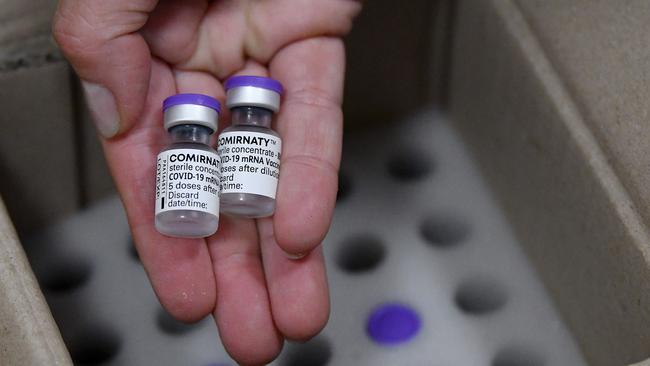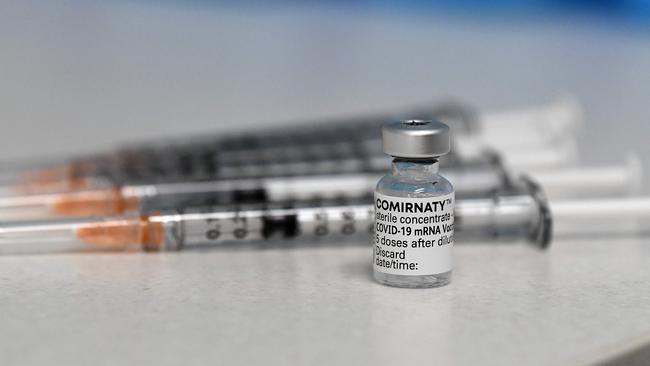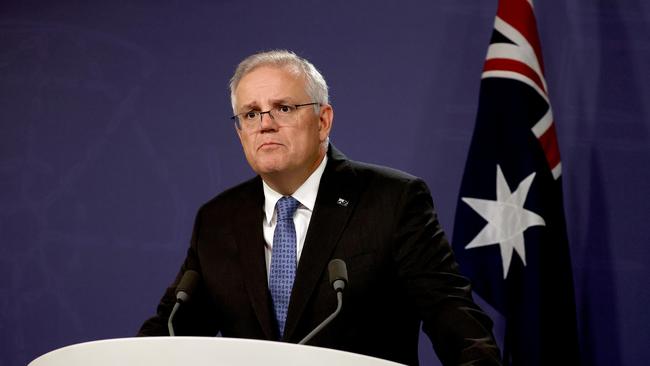Brisbane man hospitalised for clots days after receiving Pfizer vaccine
Health officials launch an urgent probe after a Brisbane frontline worker developed blood clots after receiving the Pfizer vaccine.

The Queensland government has confirmed health authorities will investigate any potential link between the Pfizer vaccine and a man who was taken to hospital with blood clots just days after receiving the jab.
The 40-year-old man, believed to be a police officer and frontline worker responsible for patrolling Queensland quarantine hotels, received the Pfizer shot on Sunday, 9 News reported.
Deputy Premier Steven Miles said Health officials would urgently look into the matter.
“It’s too early to say if this incident is linked to the Pfizer vaccine,” Mr Miles said on Wednesday.
“Clearly, our authorities will be looking into whether there is a link; looking to see whether it can help inform that vaccine rollout.
“What people should be very confident in, though, is our medical authorities are keen to investigate any such incident and provide information and data nationally and internationally.”
Three cases of thrombosis with a low platelet count have been reported in Australia before today’s development, with a 48-year-old woman dying in a NSW hospital last week after receiving the AstraZeneca vaccine.

Australia’s drugs regulator, the Therapeutic Goods Administration (TGA), determined the death of the 48-year-old diabetic woman, who developed blood clots after receiving the AstraZeneca vaccine, was likely to be linked to the jab.
“In the absence of an alternative cause for the clinical syndrome, VSIG believed that a causative link to vaccination should be assumed at this time,” a TGA statement said.
TGA said the case had been “complicated by the patient’s underlying medical conditions, including diabetes, some other medical conditions as well as some atypical features”.
Two other rare blood clot syndrome cases in Australia were also “likely” to be linked to the AstraZeneca vaccine, which included a 44-year old Melbourne man who developed the syndrome earlier in April.
A TGA statement said the first two cases remained in hospital but were recovering well.
The AstraZeneca vaccine remains approved for use in Australia because the risk of developing blood clots is extremely small.

However, the clots prompted the federal government's health advice to change earlier this month to favour the Pfizer COVID-19 vaccine over AstraZeneca for a large portion of the population.
The government accepted advice the small risk of blood clots associated with the AstraZeneca meant it should not be given to people younger than 50.
Combined with a shortage of vaccine doses, the national rollout has been set back considerably from its original October target.
Prime Minister Scott Morrison abandoned any timeline to complete the rollout.
The federal government believes the AstraZeneca vaccine contains fewer risks and greater benefits for older people, and justifies the very small risk associated with those younger than 50.

Australia’s Chief Medical Officer Paul Kelly explained that because the rare syndrome was likely an immune response, it had a greater chance of affecting young people who have “robust” immune systems.
“This is based both on the increased risk of complications from COVID-19 with increasing age, and thus increased benefit of the vaccination, and the potentially lower — but not zero — risk of this rare event with increasing age,” Professor Kelly said.
However, the Prime Minister said he hoped to get the bulk of under-50s immunised during the last three months of this year with the help of mass vaccination hubs being created.
“There’s a lot of work to be done, given that would be effectively, if we wished, a 12-week sprint,” he said. “To be able to do that safely and effectively ... there’d need to be plenty of planning to achieve that.”



To join the conversation, please log in. Don't have an account? Register
Join the conversation, you are commenting as Logout